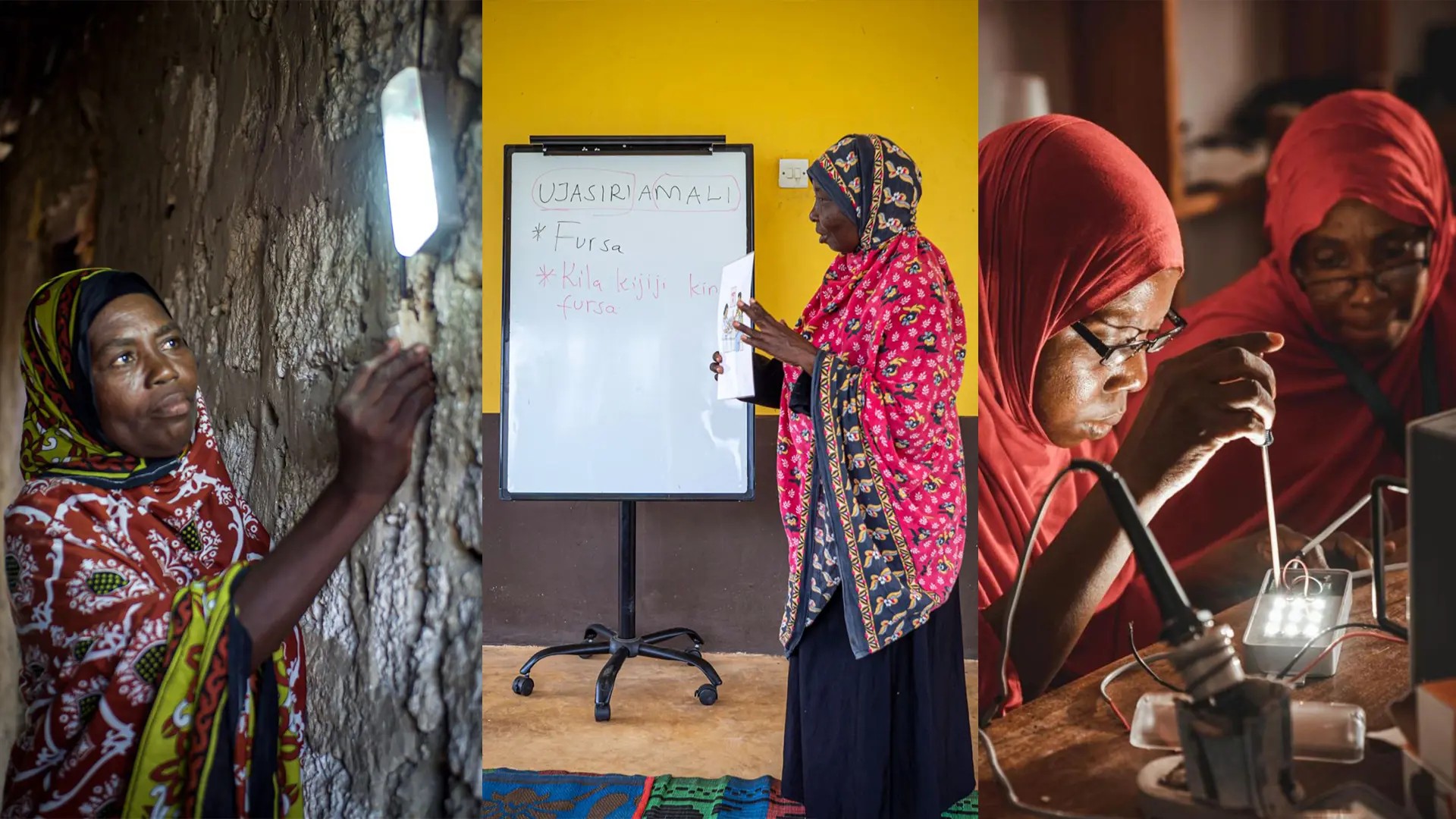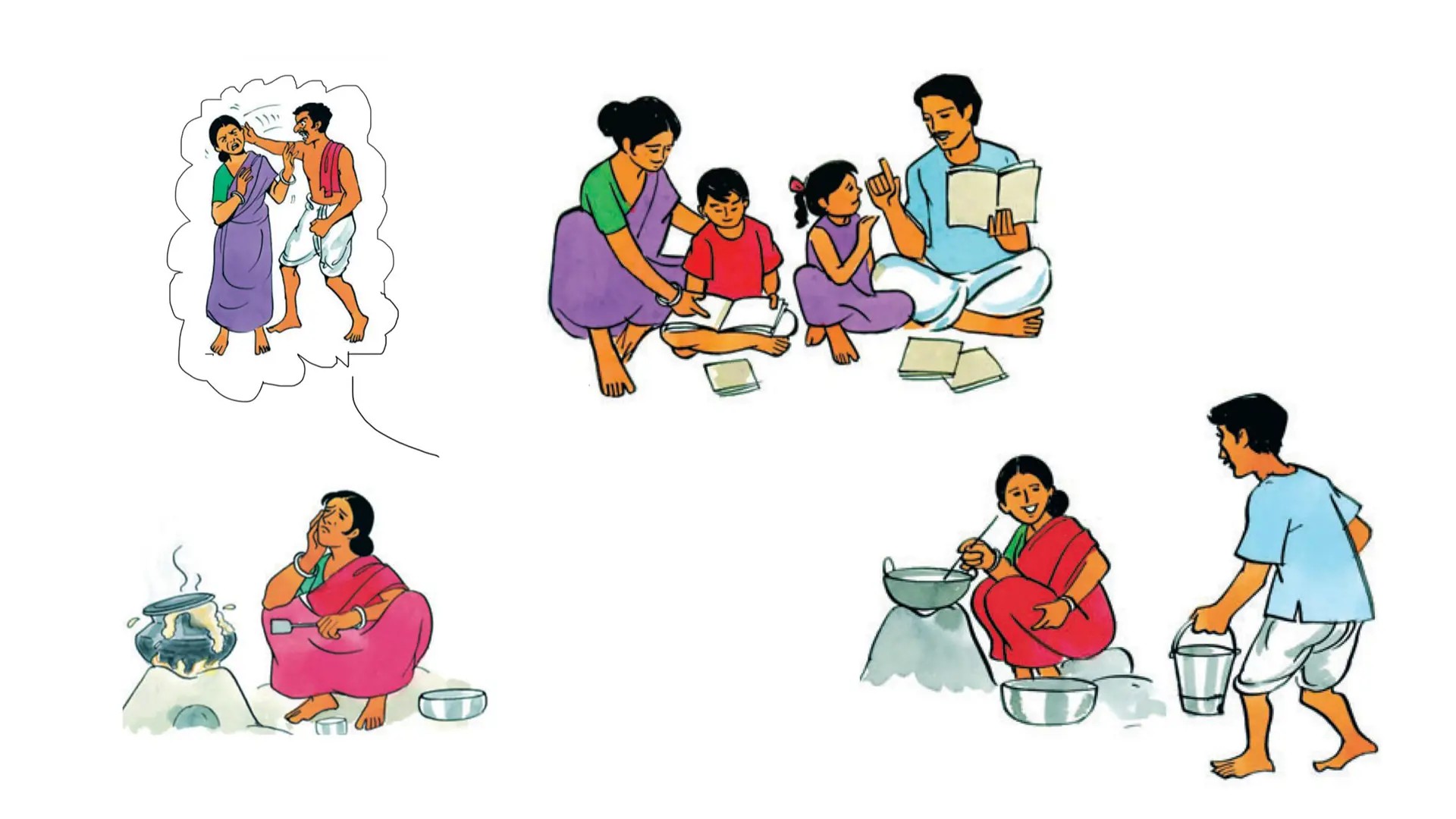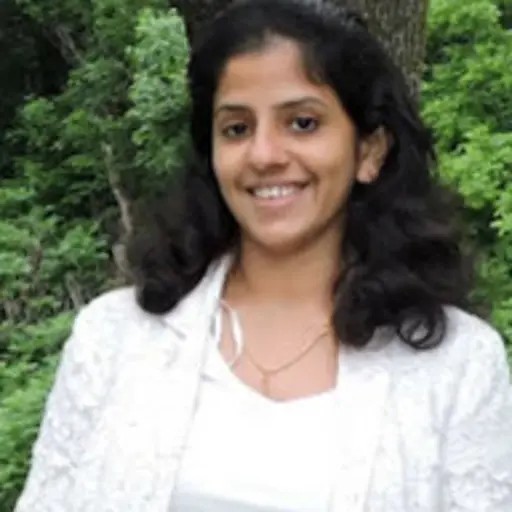
The women are illiterate and live in traditional, patriarchal societies, but are given the opportunity to become solar engineers and lead the electrification of their home villages. Researchers from Chalmers are now examining the ground-breaking initiative in Zanzibar, focusing on the social and unequal conditions of the energy transition - and on how power structures can be overturned.
“Who is mainly affected by the disasters caused by climate change? If you have resources and lose your house, you can always get a new one. But if you are poor and your entire livelihood has been washed away in floods, then you lose everything!”
This observation comes from Kavya Michael, researcher at the division of Environmental System Analysis at Chalmers, the Department of Technology Economics and Organization. Her research area is environmental social sciences, and she is passionate about issues of climate justice and how gender, class and social structures connect to sustainable energy transitions. Because in the same way that climate change hits different groups differently, Kavya Michael sees many injustices in the ongoing energy transition and today's solutions to the climate crisis.
“The focus in the energy issue is mainly on technical solutions, but the social and economic aspects of the climate crisis and its effects are often ignored. This risks deepening existing gaps, and creating ineffective and exclusionary energy solutions. That's why it's great to have a program like this that believes in turning ordinary people into energy experts, and highlights women as energy producers rather than just consumers of energy. In addition, this initiative shows that it is possible to achieve change in power structures even in the most patriarchal societies”, she says.
Electrification that overturns power structures
She talks about the Barefoot College International in Zanzibar, part of a network of nearly a hundred schools worldwide that train women in rural areas to become experts in solar energy - so-called "solar mamas." The women are paid by the government to electrify their villages using solar cells and are then responsible for operating and maintaining the equipment.
Kavya Michael is doing a case study on this program in Zanzibar. The research is part of a global research program on energy use and gender, taking place within the IEA's technology collaboration programme on energy use, Users TCP. Having recently returned from a research trip, Kavya Michael can state that the program in Zanzibar is a good example of how women can be included in the energy transition, even in marginalized communities. The benefits are both large and multi-layered.
“These women have been tied to their households in traditional societies where child marriage occurs. When they are trained and return to their villages as solar experts, it really changes the dynamic. Suddenly the women have a new role, and they contribute to the household's livelihood, while the whole village depends on them for electricity supply. So, in addition to the investment contributing to a sustainable energy transition and electrification of the countryside, norms and traditional beliefs are loosened and there is a change in the entire village”, she says.
Both women and men are involved
According to Kavya Michael, one of the key factors that contribute to the success of the program is that many parties stand behind the initiative, including international development agencies, the Revolutionary Government of Zanzibar and other government bodies. This means that there is strong support and resources to act if the recruitment of the women encounters resistance – which has happened.
To find new "solar mamas", the school's team visits villages that have no electricity, and calls for a village meeting where the initiative is presented. The team targets women over 35 who do not have young children, as the training means they will be away from home for five months. A key point is to try to involve the women's husbands from the start.
“From the beginning there is a lot of hesitation, and it happens that women who first say yes later say no because their husbands forbid them. In that case a team, including government representatives, talks to the men about the benefits of the program for the whole village. It usually succeeds, and indicates that the men's attitude also changes”, she says.
Increased awareness and critical thinking
As the women cannot read or write, the training - which is led by experienced "solar mamas" - is carried out with the help of pictures, colours and numbers, combined with practical elements. They learn how solar cells work, are installed and should be maintained, but their schooling also means other insights. An important part is the so-called "Enriche program", which gives the women knowledge and tools for self-reflection and critical thinking about society's norms and values.
“It is a lot about raising awareness about what is socially acceptable and what is not. About equality, power, and sharing chores such as cooking and raising children. But also, to provide knowledge about sexual health and the reproductive system. This is an absolutely necessary part of successful training. It is not enough to just learn the technology, the women must become aware of the power dynamics and prepare for a change”, she says.

Shows the way towards a fairer energy system
When the women return to their villages, they are tasked with installing solar cells in at least one hundred households. In addition to reducing dependence on costly and environmentally harmful kerosene, electrification means that shops - which previously closed at sunset - can stay open significantly longer. Kavya Michael has heard many stories from women about the new respect they have received, and how they have started to take more space themselves.
“The women get a new view of themselves, moving from caretakers of the family to experts with important knowledge. Since the men are also involved in the process, major changes occur. This is particularly noticeable at the village meetings, where women speak more and their opinions are solicited”, she says.
Kavya Michael hopes that the case study will be seen as a good example of how a more equal energy transition can take place throughout the world, where decentralization of the energy systems is an important part.
“Energy research is often based on a Western perspective. This study shows the way towards a more inclusive and fair energy system, using experiences from other parts of the world”, she says.
About the Chalmers study
The case study in Zanzibar is part of a global research program on energy use and gender: Empowering all. Gender in policy and implementation for achieving transitions to sustainable energy. The research program is led by researchers from Chalmers, the department for Technology Management and Economy in a collaboration between the divisions Science, Technology, and Society and Environmental system analysis.
The research takes place within the IEA's technology collaboration programme on energy use, UsersTCP. The goal is to achieve a more inclusive and efficient energy system.
About Barefoot College International
Barefoot College International started in India, and now operates in over 90 countries. The focus is on marginalized rural communities, where women are trained as solar energy experts in order to help electrify their villages. Read more about Barefoot College International and Barefoot College in Zanzibar.
Images via Barefoot Collage International
- Doctor, Environmental Systems Analysis, Technology Management and Economics
